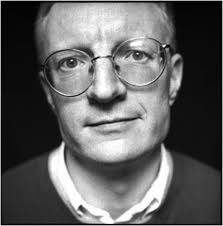"...the Imagination (or love, or sympathy, or any other sentiment) induces knowledge, and knowledge of an 'object' which is proper to it..."
Henry Corbin (1903-1978) was a scholar, philosopher and theologian. He was a champion of the transformative power of the Imagination and of the transcendent reality of the individual in a world threatened by totalitarianisms of all kinds. One of the 20th century’s most prolific scholars of Islamic mysticism, Corbin was Professor of Islam & Islamic Philosophy at the Sorbonne in Paris and at the University of Teheran. He was a major figure at the Eranos Conferences in Switzerland. He introduced the concept of the mundus imaginalis into contemporary thought. His work has provided a foundation for archetypal psychology as developed by James Hillman and influenced countless poets and artists worldwide. But Corbin’s central project was to provide a framework for understanding the unity of the religions of the Book: Judaism, Christianity and Islam. His great work Alone with the Alone: Creative Imagination in the Sufism of Ibn ‘Arabi is a classic initiatory text of visionary spirituality that transcends the tragic divisions among the three great monotheisms. Corbin’s life was devoted to the struggle to free the religious imagination from fundamentalisms of every kind. His work marks a watershed in our understanding of the religions of the West and makes a profound contribution to the study of the place of the imagination in human life.Search The Legacy of Henry Corbin: Over 800 Posts
Sunday, August 15, 2010
Reclaiming the Imagination by Timothy Williamson. In the NYTimes. While this isn't what Corbin had in mind by reclaiming the imagination for philosophy and theology, it is more than is often acknowledged by mainstream philosophers. Nice to see I think.
"Imagine being a slave in ancient Rome. Now remember being one. The second task, unlike the first, is crazy. If, as I’m guessing, you never were a slave in ancient Rome, it follows that you can’t remember being one — but you can still let your imagination rip. With a bit of effort one can even imagine the impossible, such as discovering that Dick Cheney and Madonna are really the same person. It sounds like a platitude that fiction is the realm of imagination, fact the realm of knowledge.
Why did humans evolve the capacity to imagine alternatives to reality? Was story-telling in prehistoric times like the peacock’s tail, of no direct practical use but a good way of attracting a mate? It kept Scheherazade alive through those one thousand and one nights — in the story. On further reflection, imagining turns out to be much more reality-directed than the stereotype implies... " Read the entire essay.
Why did humans evolve the capacity to imagine alternatives to reality? Was story-telling in prehistoric times like the peacock’s tail, of no direct practical use but a good way of attracting a mate? It kept Scheherazade alive through those one thousand and one nights — in the story. On further reflection, imagining turns out to be much more reality-directed than the stereotype implies... " Read the entire essay.
Timothy Williamson is the Wykeham Professor of Logic at Oxford University, a Fellow of the British Academy and a Foreign Honorary Member of the American Academy of Arts and Sciences. He has been a visiting professor at M.I.T. and Princeton. His books include “Vagueness” (1994), “Knowledge and its Limits” (2000) and “The Philosophy of Philosophy” (2007).
Subscribe to:
Post Comments (Atom)









No comments:
Post a Comment